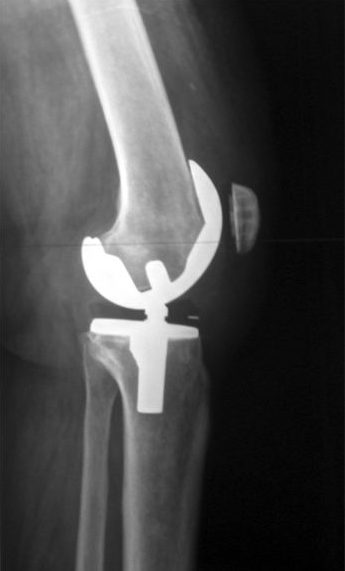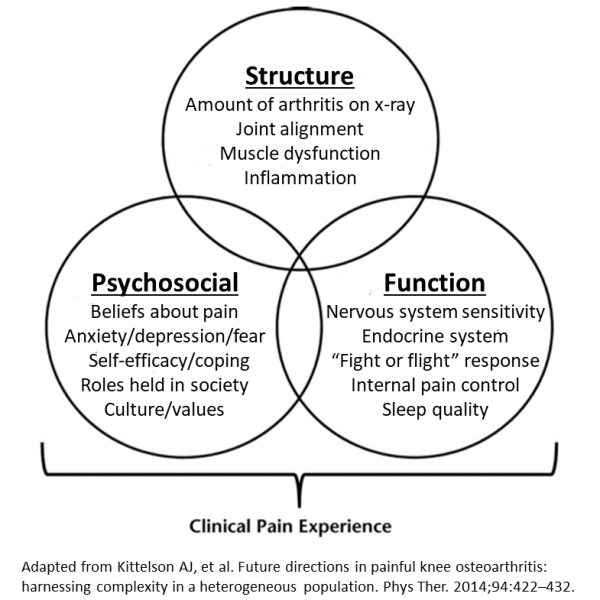Are you considering a total knee replacement?
If so, make sure to read this article first. We now have enough information to reasonably predict which patients are at higher risk for having a poor outcome following total knee replacement.

Overall, total knee replacement is an incredibly successful surgery, but about 10% of patients are dissatisfied with their result. In fact, 7% are dissatisfied to the extent that they would choose not have the surgery if they could go back in time and make the choice over again. DON'T BE ONE OF THESE PEOPLE! Taking the appropriate steps BEFORE your surgery can help ensure you have a successful outcome. In some cases, taking proactive measures may delay or even eliminate the need to have the surgery in the first place. Keep reading to learn more!
Beyond the x-ray
If you are considering having total knee replacement, chances are you have probably had an x-ray showing arthritis, decreased joint space, or bone spurs. You may have even been told you are "bone-on-bone". But did you know that the severity of the arthritis on your x-ray is only 1 of 3 factors affecting how much pain you will experience? The other two factors include your thoughts, feelings and beliefs as well as how sensitive your nervous system is. See the diagram below.

As you can see, if your pain is mostly affected by your joint structure (SEVERE knee arthritis on x-ray) without much involvement in the psychosocial or nerve function categories, then you are probably going to do great with a total knee replacement. Note that total knee replacement surgery is only intended for people with SEVERE arthritis on their x-ray. Even if you have severe pain, if your arthritis is mild to moderate, knee replacement is probably not the best solution for you at this time. Addressing psychosocial factors such as pain beliefs, anxiety, and depression and taking steps to calm your nervous system may delay or prevent the need for surgery. If you DO have severe knee arthritis, addressing these factors before surgery will help ensure a better outcome. Anxiety, depression, other health conditions (diabetes, high blood pressure, etc.), and nerve sensitivity (i.e. widespread pain, pain in both knees, fibromyalgia, neuropathy, etc.) have been associated with poorer outcomes following knee replacement surgery.
How can physical therapy help?
What if I've already tried physical therapy?
A recent study showed that 8 weeks of physical therapy prior to total knee replacement resulted in improved quality of life without an increase in total cost of care one year after surgery. How exactly physical therapy will help you will depend on the specific factors contributing to your pain experience. For someone who has pain that is highly structural, improving range of motion, flexibility, and strength before the surgery may be good options. If psychosocial factors are contributing to your pain, learning stress management, pain coping skills, and information to address your fears about surgery has been shown to improve post-surgical outcomes. Finally, if nerve sensitivity is a big factor, manual therapy techniques such as joint mobilization, instrument assisted soft tissue mobilization, and dry needling can be helpful to decrease the sensitivity of your nerves. In fact, a single session of dry needling prior to surgery was shown in a randomized controlled trial to decrease pain for one month following total knee replacement.
If you've already tried physical therapy and it didn't work, take time to consider if your therapy addressed all 3 of the domains mentioned above. If you only did stretching, strengthening, and other exercises, chances are there may be other factors contributing to your pain.
Want a free risk-assessment before having total knee replacement?
Call More 4 Life Physical Therapy
to set up your FREE consultation!
Have you already had total knee replacement?
If you didn't have a chance to read this article before having your knee replaced, don't worry. We're good at treating chronic post-surgical pain too!
